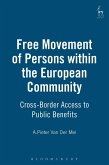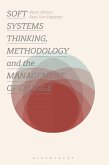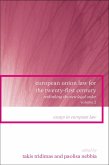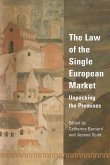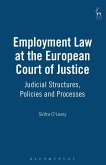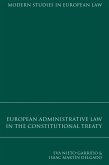This book offers the first systematic investigation of the phenomenon of soft law within the framework of the EC (the first pillar of the EU),and its use by the European Commission and Council of Ministers. It focusses upon how soft law fits into the Community legal system, and how it is used, and, in particular, how it relates to Community legislation.
Differentiation of the Community instruments, including the instruments of soft law, is often thought to enhance the effectiveness, legitimacy and transparency of the Community. This book asks whether soft law indeed provides a satisfactory alternative to legislation from this perspective and, if so, in what cases and under what conditions. Furthermore, the author asks to what extent the use of soft law implies good governance, and throws fresh light on this very heterogenous phenomenon, by looking at frequently used instruments in many different areas of Community law, such as competition law, state aid, environment, social policy etc., in the process identifying their different characteristics, aims, functions and legal effects. What emerges is that the conditions under which soft law is used may be problematic in relation to increasing the legitimacy, effectiveness and transparency of Community action.
This is a work which will interest legal practitioners confronted with the use of soft law and the question of its possible legal effect in an increasing number of sectors and academics interested in the vexed question of how the increased use of soft law can be justified in a Community legal order built upon the rule of law. It is also critical of developments taking place within the framework of the European Convention and the proposed European Constitution, and goes beyond the immediate problems of soft law to touch upon issues such as competence, legal protection, division of powers between the EC and the Member States, institutional balance, lawmaking by the Community Courts, the scope of Community legal principles and the influence of soft law on the progressive development of both Community and national law.
Differentiation of the Community instruments, including the instruments of soft law, is often thought to enhance the effectiveness, legitimacy and transparency of the Community. This book asks whether soft law indeed provides a satisfactory alternative to legislation from this perspective and, if so, in what cases and under what conditions. Furthermore, the author asks to what extent the use of soft law implies good governance, and throws fresh light on this very heterogenous phenomenon, by looking at frequently used instruments in many different areas of Community law, such as competition law, state aid, environment, social policy etc., in the process identifying their different characteristics, aims, functions and legal effects. What emerges is that the conditions under which soft law is used may be problematic in relation to increasing the legitimacy, effectiveness and transparency of Community action.
This is a work which will interest legal practitioners confronted with the use of soft law and the question of its possible legal effect in an increasing number of sectors and academics interested in the vexed question of how the increased use of soft law can be justified in a Community legal order built upon the rule of law. It is also critical of developments taking place within the framework of the European Convention and the proposed European Constitution, and goes beyond the immediate problems of soft law to touch upon issues such as competence, legal protection, division of powers between the EC and the Member States, institutional balance, lawmaking by the Community Courts, the scope of Community legal principles and the influence of soft law on the progressive development of both Community and national law.



